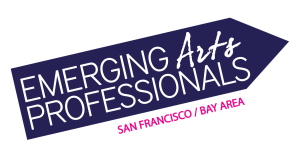A response to "The Biggest Problem Facing the Arts"
A response to “The Biggest Problem Facing the Arts”
Friday, September 18, 2009 at 10:22am
I recently read Michael Kaiser’s post on “The Biggest Problem Facing the Arts” on the Huffington Post and felt the need to draft a quick response because of I’m tired of the assumption that the problem is that “we don’t exist.” (i.e., the lack of viable future arts leaders) Sheesh. Personally, I want to move on from this part of the conversation, and explore more interesting things: how to create new positions, on-going professional development opportunities, meaningful mentorship relationships, creating cross-disciplinary networks and sustainable cultural policy. But I didn’t want this to pass without commenting.
I encourage you to read the post and respond as well if you feel so inspired.
Here’s the link to Michael’s post:
http://www.huffingtonpost.com/michael-kaiser/the-biggest-problem-facin_b_279108.html
And here’s my response:
Dear Michael:
While I appreciate you taking the opportunity to shine a light on this critical topic, I think the issue you’ve touched on is much deeper than the one you’ve presented and reflects a systemic structural problem within our nation’s non-profits.
There isn’t a shortage of committed, eager, and smart emerging/mid-career arts management professionals desiring to be the next generation of arts leaders. The issue is the challenge of “getting a seat at the table.” Over the past few decades, the non-profit arts have developed an infrastructure which presents severe challenges for talented candidates looking to advance their careers.
An emerging/mid-career professional faces a myriad of obstacles in trying to climb their career ladder: limited “stepping stone” salaried positions coupled with current leaders postponing retirement and creating a severe bottleneck; life/work balance challenges including identifying ways of consistently making a living wage (at a certain point, one wants to graduate from “sleeping on a futon” or living in an apartment with multiple roommates, let along having the resources to start a family and buy a home); lack of health insurance; limited opportunities for growth within an organization or a specific city; limited access to or resources to support deeper professional development and travel; and, a lack of access to a cohesive, national networking structure.
I have regularly spoken to current leaders who have expressed that their organizations have grown increasingly complicated over time and that, upon reflection, they might not have hired their “younger, less experienced selves” for their positions. This mindset is also echoed by board members on search committees who are less likely to take a risk on an “untried” leader, particularly in these economic times. While I recognize the fear, how can an emerging/mid-career candidate confront and overcome this mindset?
It is even more critical now that so many organizations are facing financial hardships. The choices that the current leaders make could have long-lasting impact on future leadership. Frankly, if organizations strictly follow the advice in your book and focus resources primarily on marketing and art, and therefore seriously limit professional development, travel and salary budget lines, I fear that many potential leaders will either leave the field or grow stagnant in their current positions.
Luckily, this is a conversation that many organizations and foundations have begun to address over the past year or so. Programs are emerging within the different arts disciplines offering professional development, mentorship opportunities, and travel stipends for conference attendance. That’s a great first step.The issues are much deeper than what can be solved by a one-year professional development opportunity or mentorship program, as valuable as that individual experience may be. We need to invest much deeper in a national, multi-disciplinary effort. On-going learning and relationship-building is a necessity as one grows in their career. And we need to address job availability and growth so our most talented candidates don’t leave the field.
I don’t think anyone really chooses a career in arts administration to become wealthy or famous. They do it because they want to dedicate their lives to something that they find meaningful with interesting challenges and want to use their skills to create an environment which allows great art to be created and shared with a community. However, if we don’t remove some of the roadblocks to career growth, our most talented future leaders will leave the field, creating a void which will impact and be felt by all.
Rachel L. Fink
Rachel Fink is Associate General Manager of Berkeley Rep School of Theatre.

Trackbacks & Pingbacks
[…] (more here http://sfbaeap.com/2009/10/02/a-response-to-the-biggest-problem-facing-the-arts/) […]
Leave a Reply
Want to join the discussion?Feel free to contribute!